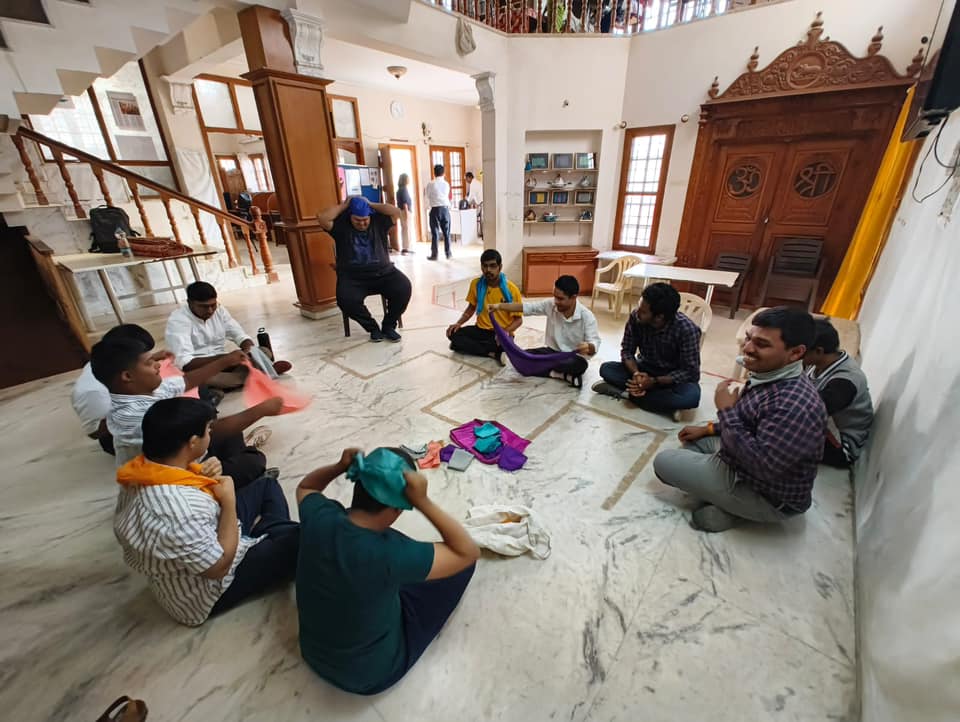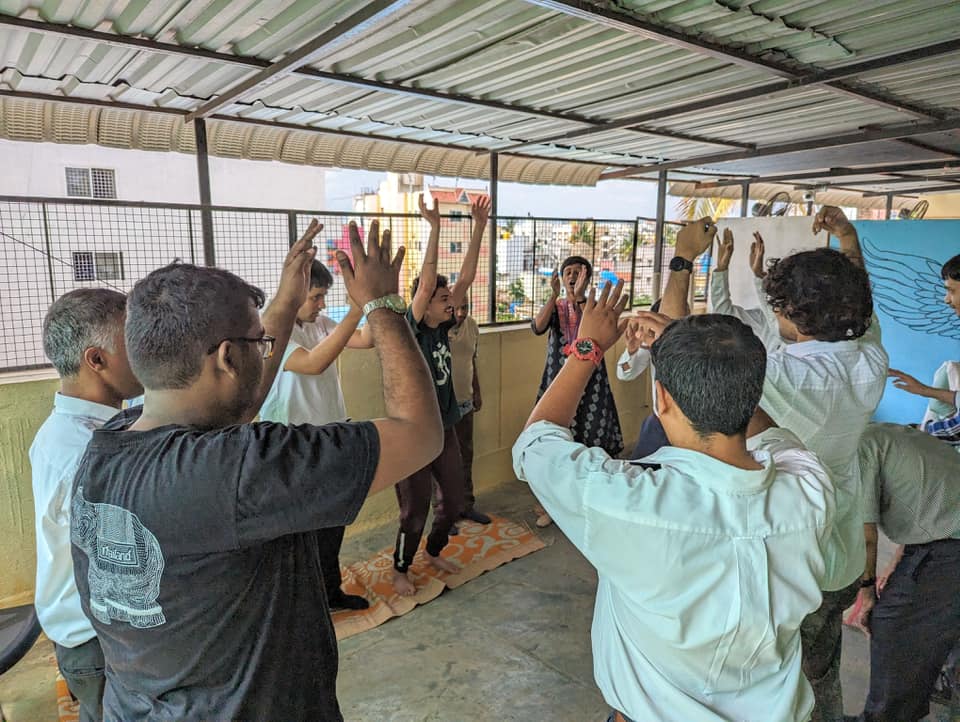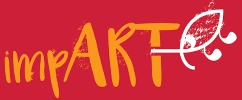Special Schools
We work using direct interventions in classrooms with special needs populations in schools and learning centres. Below are some organisations that showcase the work we have done in these spaces. The idea is to share best practices of learning and facilitation.
- Diya Foundation
- Umang Special Care Centre, Alwar
- Project PIPAL
- SCH
- ACA
- Brindavan Education Trust
- Enable India


Project PIPAL with Headstreams
Headstreams has been working on improving lives of marginalised and under-privileged communities since 2008 using the Human Development approach. One of the focus of Headstreams’ work has been to provide exploratory, experimental and experiential learning opportunities for children and youth to help them become life-long learners. Project PIPAL is headed by Headstreams at the Government Observation Home in Madivala market, Bengaluru.
One of our key engagements this year is the project PIPAL -Programmes in ‘Play and learning’. The learning and the free play space that has been set in the Madiwala Observation Home is a platform that meaningfully engages the inmates through directive and non-directive sessions using Multi-Arts and Play. This project is led by S Sarangan, Parvathi G, Gitanjali Sarangan of the impART team. Sessions in the Observation home are facilitated through the week with the Sunday sessions being a space for Drumming , Theatre and Play.
The inauguration of PIPAL Open Learning and Free Play Space at the Observation Home for Boys, Madiwala on May 7, 2018 brought together dignitaries and the inmates experienced the Arts. The members of the Committee for Welfare of Juveniles and implementation of the Provisions of the Juvenile Justice in Karnataka – Hon’ble Mrs. Justice B.V.Nagarathna, Hon’ble Mr. Justice B.Veerappa and Smt. Uma M. G., Member Secretary (Karnataka State Legal Services Authority accompanied by Smt. Kalpana Purushothaman, Juvenile Justice Board (JJB) Member graced the evening. They participated in an inclusive session with the boys and the Observation Home staff. Arts and Play indeed see no boundaries.
Sharanya Children’s Home
Sharanya Children’s Home, R. T. Nagar houses 25 girls between the age of 6 and 16 years.
They are provided with secure and spacious accommodation, schooling, nutritious food, medical assistance and recreation. This home for Destitute Children was started in the year 1991, with funds from Government of Karnataka, Department of Women and Child Development and individual donors. Presently these children go to primary and middle schools.
Our Wisdom First project facilitated by Sumathi Ramjee involves bi-weekly sessions with a group of ten children from the home of 6 to 12 years of age. The ABT sessions are primarily focussed on therapeutic goals like Conflict resolution, Coping with stress and emotions, Creative expression and Group interaction.
The speciality of the case study being done is in effectively weaving in key concepts like generosity, sharing, conflict resolution, emotional expression, compassion, patience, discipline and cooperative play into the sessions using multi art forms of drama, play, movement, music and visual art.
Apoorva Centre for Autism (ACA)
The Society for the Autistics in India (SAI) is a non-profit charitable trust, registered under National trust and DNA registered (Disability NGO alliance), founded by a group of parents of autistic children with an objective of educating/training individuals with autism. Apoorva Centre for Autism (ACA) is an educational and training centre started in 1996 by SAI, registered under National Trust. There are about 70 children at the centre across their Early Intervention, Communication Development Program and Vocational Training.
Our Wisdom First Project titled SamAsana – Togetherness (2017-2018) , facilitated by Gitanjali Sarangan is with a functional academic group of children between 9-12 years of age at ACA.
The stated aim of the ABT sessions with this group is to mindfully integrate into the therapeutic work key concepts of interdependence, nature of feelings, sense of responsibility and harmony. The loving presence of each one in the group should help them with self-awareness and allow them to experience small successes and build confidence. The focus of the ABT sessions is to complement the interventions to achieve the IEP set for each child. Through the key concept lens the sessions along with achieving the TGs also allow the group to look at sharing and generosity, discipline, interdependence and happiness of being together.
Art in Education Program at Addressing Social Skills through Arts at Brindavan Education Trust (2013-2015)
Facilitators from Snehadhara Foundation designed, conducted theatre sessions for the senior school students of Brindavan Education Trust for the academic year 2013-2014.
The sessions had the following focus areas:
- Body, Voice and Movement– Loosen inhibitions, increasing agility and flexibility
- Expression – Social dynamics and bonding with large and small groups
- Theatre – Basic understanding of stage, storytelling and ensemble theatre
Between 2014 and 2015 , we had a engagement with 40 senior school students at the Brindavan Educational Trust. Our work with this group focussed on the various aspects in the social domain of adolescents.
EnAble India is a non-profit organization working since its inception from 1999 towards the economic independence and dignity of persons with disabilities.
It has started an employability training programme with the candidates under Autism spectrum disorder and other related disorders. The programme aims at making the selected candidates employable so that they are placed with the employers.
The central thrust of Snehadhara’s work with EnAble was to use Arts based interventions to create an interdisciplinary approach that integrates practical, artistic and conceptual elements in the existing learning protocols in order to empower adults with disabilities. The pilot project was designed keeping in mind the possibility of using ABT to address areas of development that include Speech, Sensory Integration, Motor Skills, Cognition and Social Dynamics. In doing so, the attempt was to implement, execute and measure qualitative outcomes of these various processes.
Keeping in mind the post placement needs of the participants, the Buddy system approach was attempted in order to accelerate learning between identified pairs of buddies, thereby, creating a platform for peer to peer and socio cognitive learning.










